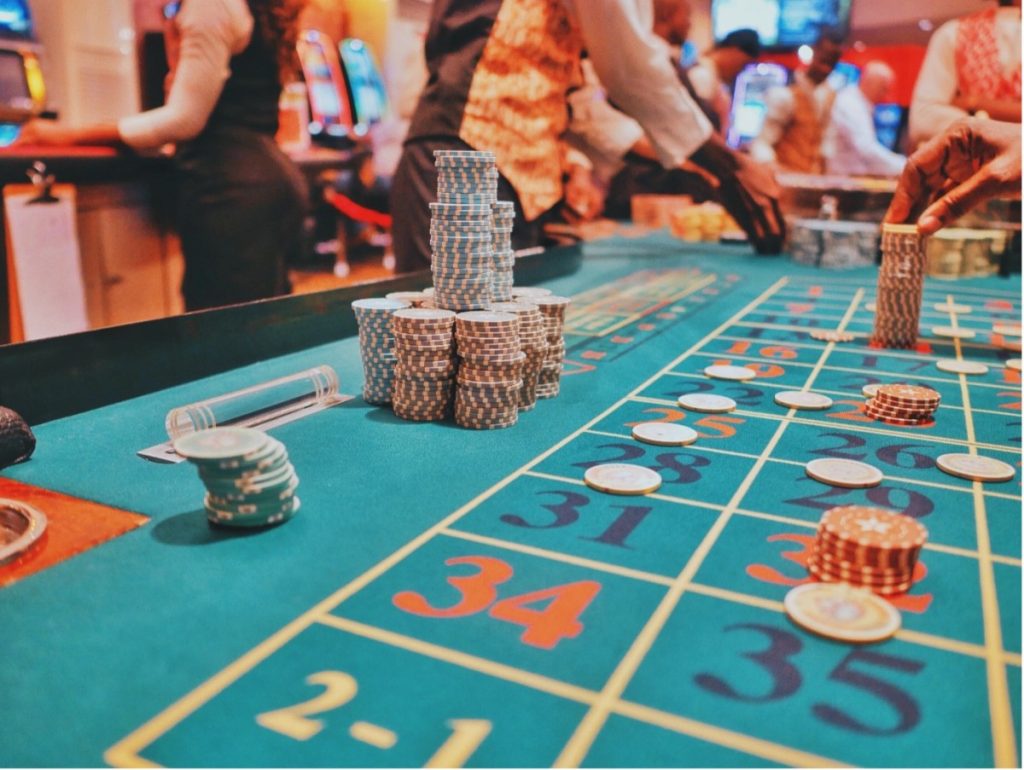Expert Advice on Recognizing and Addressing Problem Gambling
Gambling addiction, also known as compulsive gambling or gambling disorder, is a serious issue that affects millions of individuals worldwide. It is characterized by an uncontrollable urge to gamble, despite the negative consequences it may have on one’s life. This addiction can lead to severe financial, emotional, and social problems, making it crucial to recognize the signs early and seek appropriate help.

Recognizing the Signs of Gambling Addiction
One of the most evident signs of gambling addiction is financial distress. Individuals may deplete their savings, accumulate significant debt, or even resort to illegal activities to fund their gambling habits. If you notice unexplained financial problems, frequent borrowing of money, or selling possessions, it may indicate a gambling problem.
Behavioral changes are another critical indicator. Those struggling with gambling addiction might become secretive about their activities, lie to family and friends, or become increasingly irritable and anxious when not gambling. They may also neglect responsibilities at work, school, or home, prioritizing gambling over other aspects of their life.
Gambling addiction often coexists with other mental health issues such as depression, anxiety, or substance abuse. Individuals may experience mood swings, feelings of guilt or shame, and a sense of hopelessness. Persistent gambling despite these negative feelings is a strong sign of addiction.
Addressing Gambling Addiction
The first step in addressing gambling addiction is to seek professional help. This can include therapy with a licensed mental health professional, such as a psychologist or counselor, who specializes in addiction. Cognitive-behavioral therapy (CBT) is particularly effective in treating gambling addiction by helping individuals change their thought patterns and behaviors related to gambling.
Support groups, such as Gamblers Anonymous (GA), provide a safe and supportive environment for individuals to share their experiences and receive encouragement from others who understand their struggles. These groups follow a 12-step program similar to Alcoholics Anonymous, offering a structured approach to recovery.
Given the significant financial impact of gambling addiction, financial counseling can be beneficial. A financial counselor can help individuals create a plan to manage their debts, rebuild their savings, and develop healthier financial habits. This support can reduce stress and provide a clearer path to recovery.
Preventing Relapse
To prevent relapse, it is essential to identify and avoid triggers that may lead to gambling. Triggers can include certain social situations, stress, or even boredom. By recognizing these triggers, individuals can develop strategies to cope with them without resorting to gambling.
Replacing gambling with healthier activities is crucial in the recovery process. Engaging in hobbies, exercising, spending time with loved ones, and focusing on personal growth can provide fulfillment and reduce the temptation to gamble. Building a balanced and enjoyable lifestyle is key to long-term recovery.
Recovery from gambling addiction is an ongoing process that requires continuous support. Regular check-ins with a therapist, participation in support groups, and maintaining open communication with trusted friends and family can provide the necessary support to stay on track. Ongoing encouragement and accountability are vital to sustaining recovery.
Impact on Families and Relationships
Gambling addiction not only affects the individual but also places a significant emotional strain on family and close relationships. Loved ones may experience feelings of betrayal, anger, and confusion, leading to conflicts and a breakdown in trust. This emotional turmoil can result in a hostile home environment, further exacerbating the individual’s addiction.
The financial consequences of gambling addiction can severely impact family stability. The loss of savings, mounting debts, and potential bankruptcy can place immense stress on relationships. Financial insecurity can lead to arguments, resentment, and a diminished quality of life for all family members involved.
As gambling becomes the primary focus of an addict’s life, social isolation often follows. Relationships with friends and family may deteriorate as the individual becomes more consumed by their addiction. This isolation can create a vicious cycle, where the lack of support and social interaction drives the individual deeper into their gambling habits.
Support for Affected Families
Family therapy can be a crucial component in the recovery process, addressing the impact of gambling addiction on the entire family unit. A trained therapist can help families communicate more effectively, rebuild trust, and develop strategies to support the addicted individual while also caring for their own emotional well-being.
To mitigate the financial impact of gambling addiction, families may benefit from financial planning and counseling services. These services can help families create a realistic budget, manage debts, and establish a financial plan to regain stability. By working together on financial solutions, families can alleviate some of the stress and work towards a more secure future.
Support Groups for Families
Support groups for families of gambling addicts provide a safe space to share experiences, receive advice, and gain emotional support from others facing similar challenges. These groups can offer valuable insights into coping mechanisms, self-care strategies, and ways to assist the addicted individual in their recovery journey.
Legal and Ethical Considerations
Gambling addiction can sometimes lead individuals to engage in illegal activities, such as theft, fraud, or embezzlement, to fund their gambling. Understanding the legal implications of these actions is crucial. Legal counseling can help individuals navigate any legal issues arising from their addiction and work towards resolving them responsibly.
Promoting ethical gambling practices is essential to prevent addiction and protect vulnerable individuals. Casinos and online gambling platforms have a responsibility to implement measures such as self-exclusion programs, limit-setting options, and providing resources for addiction support. Raising awareness about responsible gambling can help create a safer environment for all players.
The Role of Technology in Addressing Gambling Addiction
The internet offers a wealth of resources for individuals seeking help with gambling addiction. Online therapy, support groups, and educational materials can provide immediate and accessible support. Many organizations offer confidential helplines and chat services for those in need of assistance.
Technology can also be used to monitor gambling behavior and promote self-control. Apps and software that track spending, time spent gambling, and provide alerts for excessive gambling can help individuals stay aware of their habits. These tools can be an integral part of a broader strategy to manage and overcome addiction.
Moving Forward: Hope and Recovery
Recovery from gambling addiction is a challenging journey that deserves to be celebrated at every milestone. Recognizing and celebrating progress, no matter how small, can provide motivation and reinforce positive behavior changes. This acknowledgment can come from both the individual and their support network.
Creating a supportive community is vital for sustained recovery. Engaging with peers, attending regular support group meetings, and maintaining open lines of communication with loved ones can foster a sense of belonging and accountability. A strong support network can provide the encouragement and strength needed to maintain sobriety.
Recovery offers the opportunity to embrace a new, healthier lifestyle. Focusing on personal growth, exploring new hobbies, and setting future goals can replace the void left by gambling. By redirecting energy into positive activities and fostering a balanced life, individuals can find fulfillment and joy beyond gambling.
Chung Fang is a writer and avid casino enthusiast with a passion for all things gaming-related. With years of experience in the industry, Chung brings a wealth of knowledge and insight to the table, making him a valuable asset to the DarkFader.net team.
